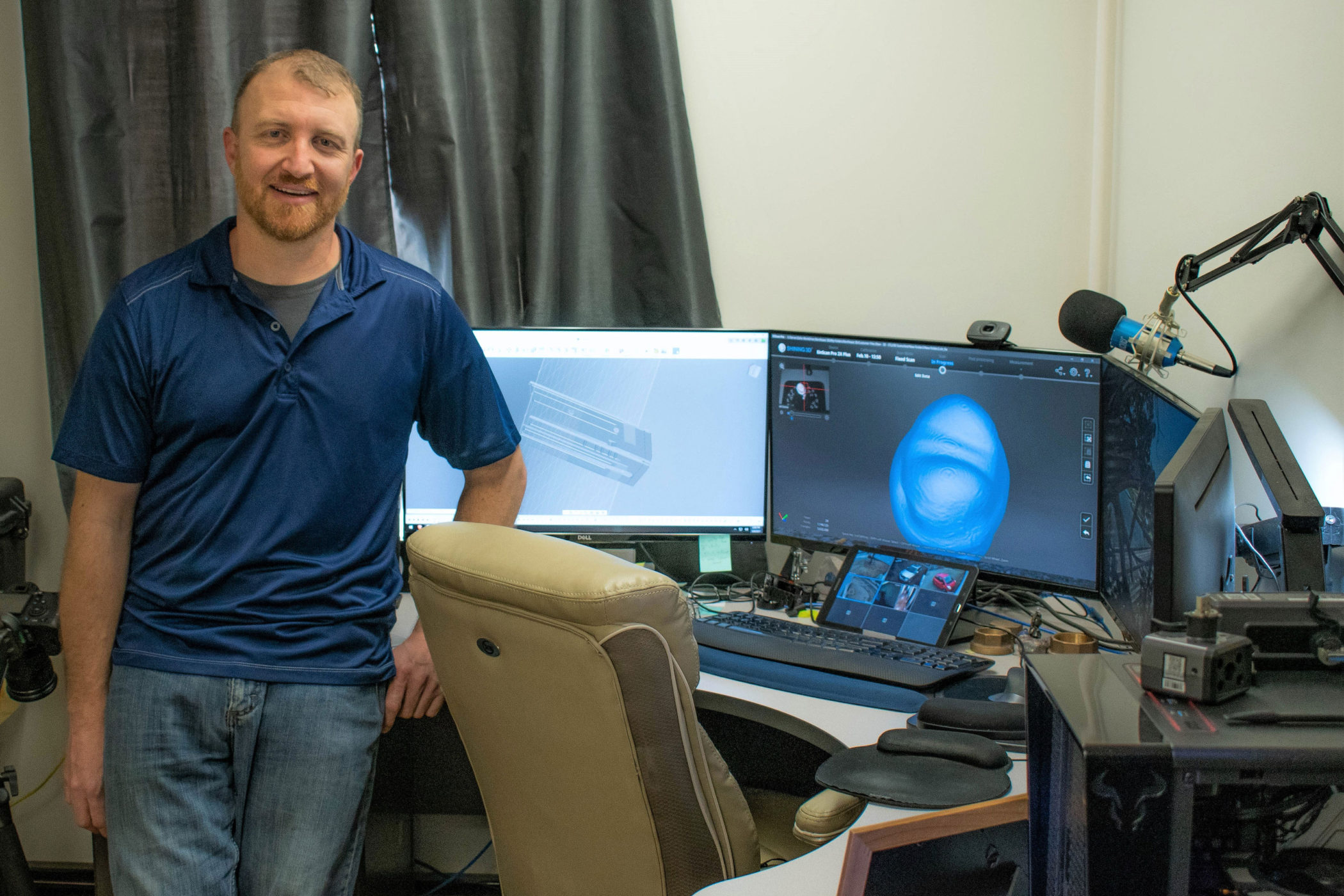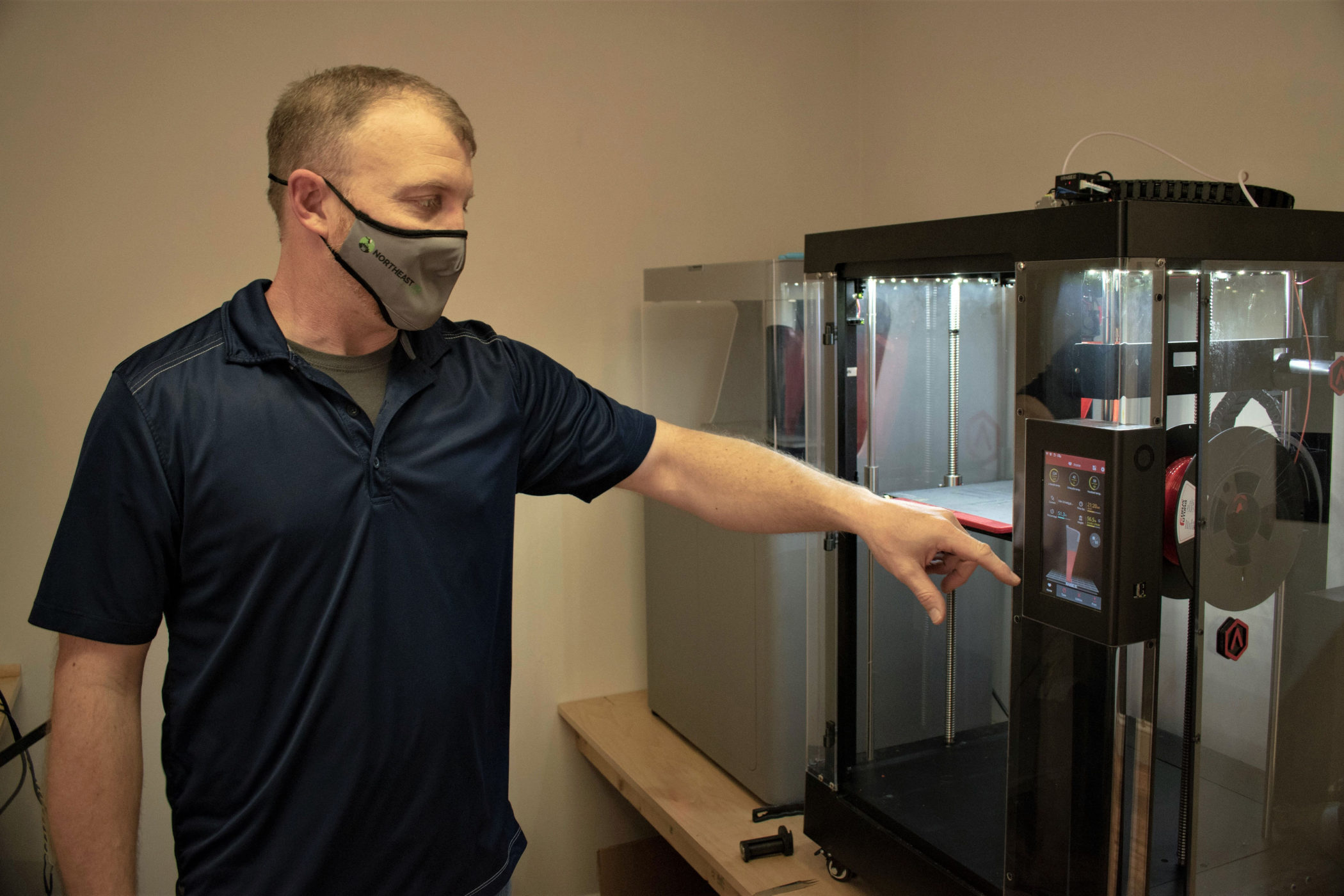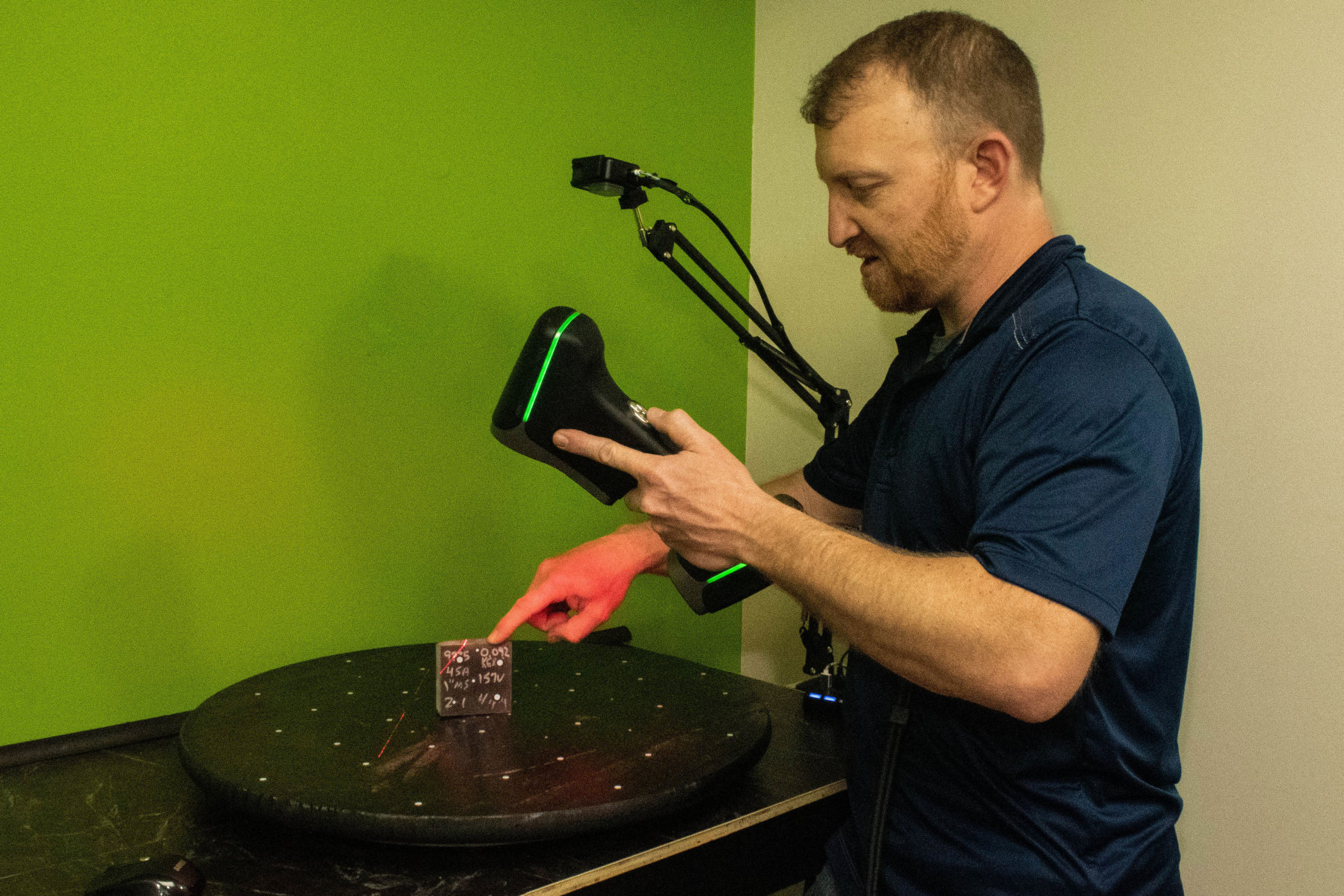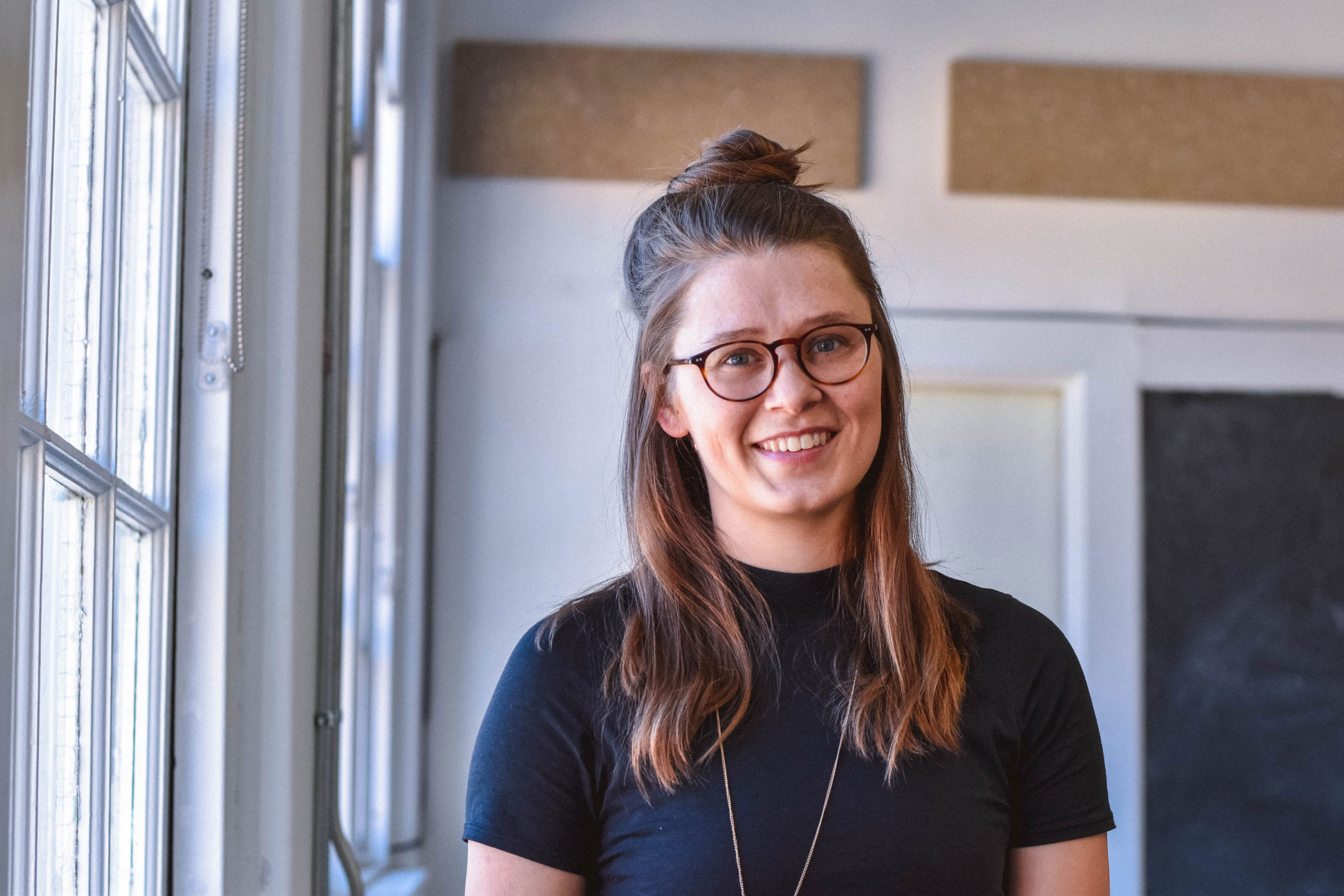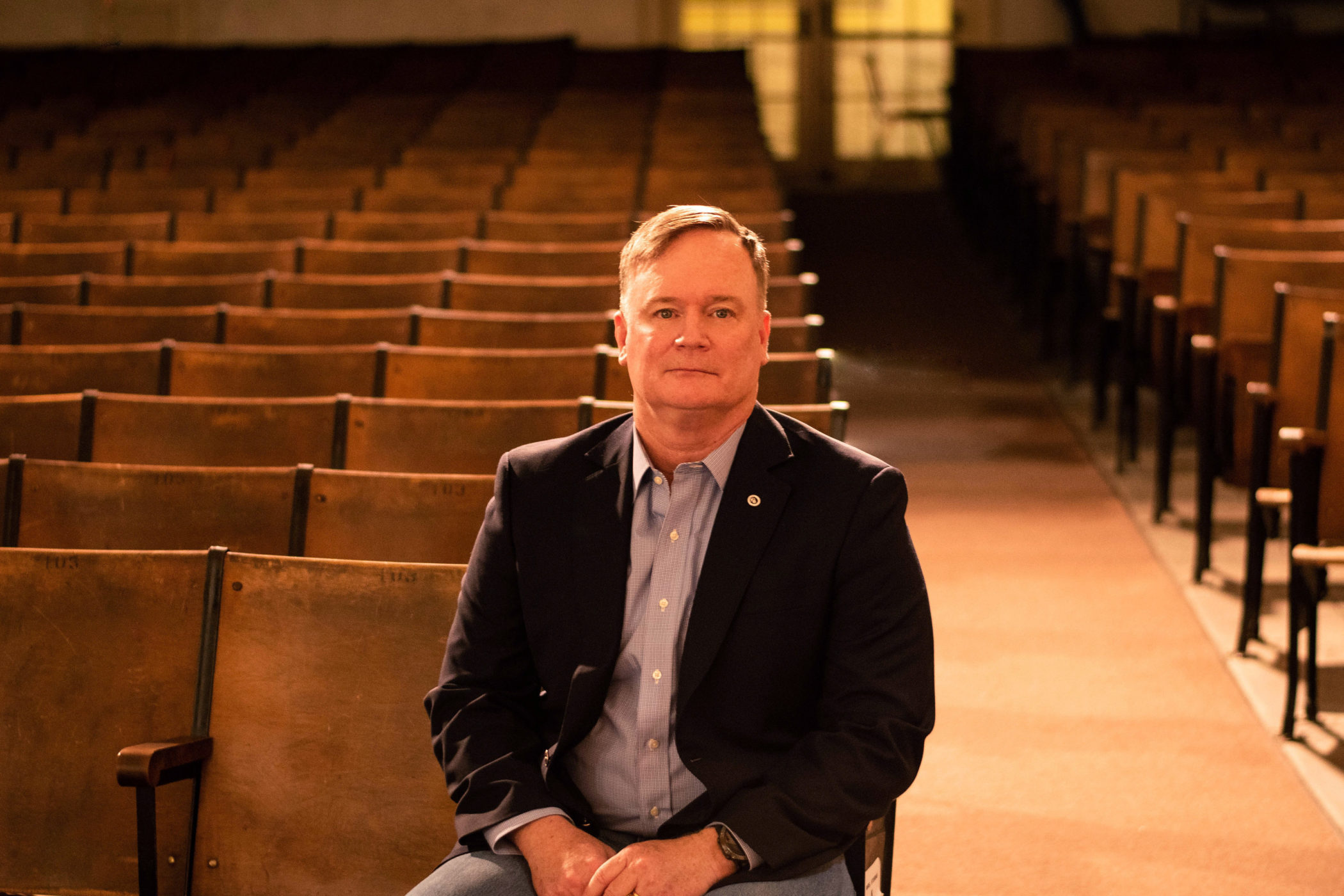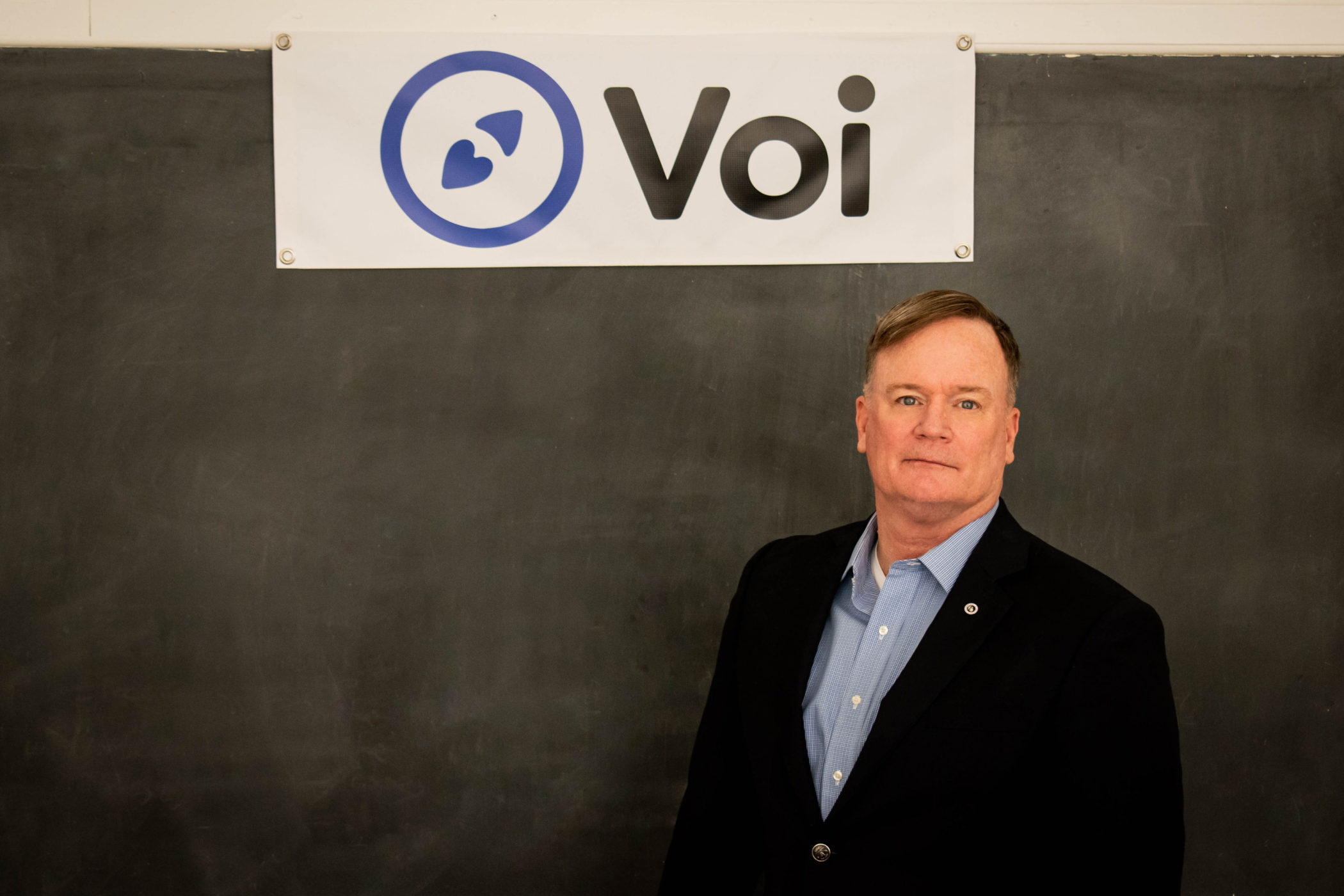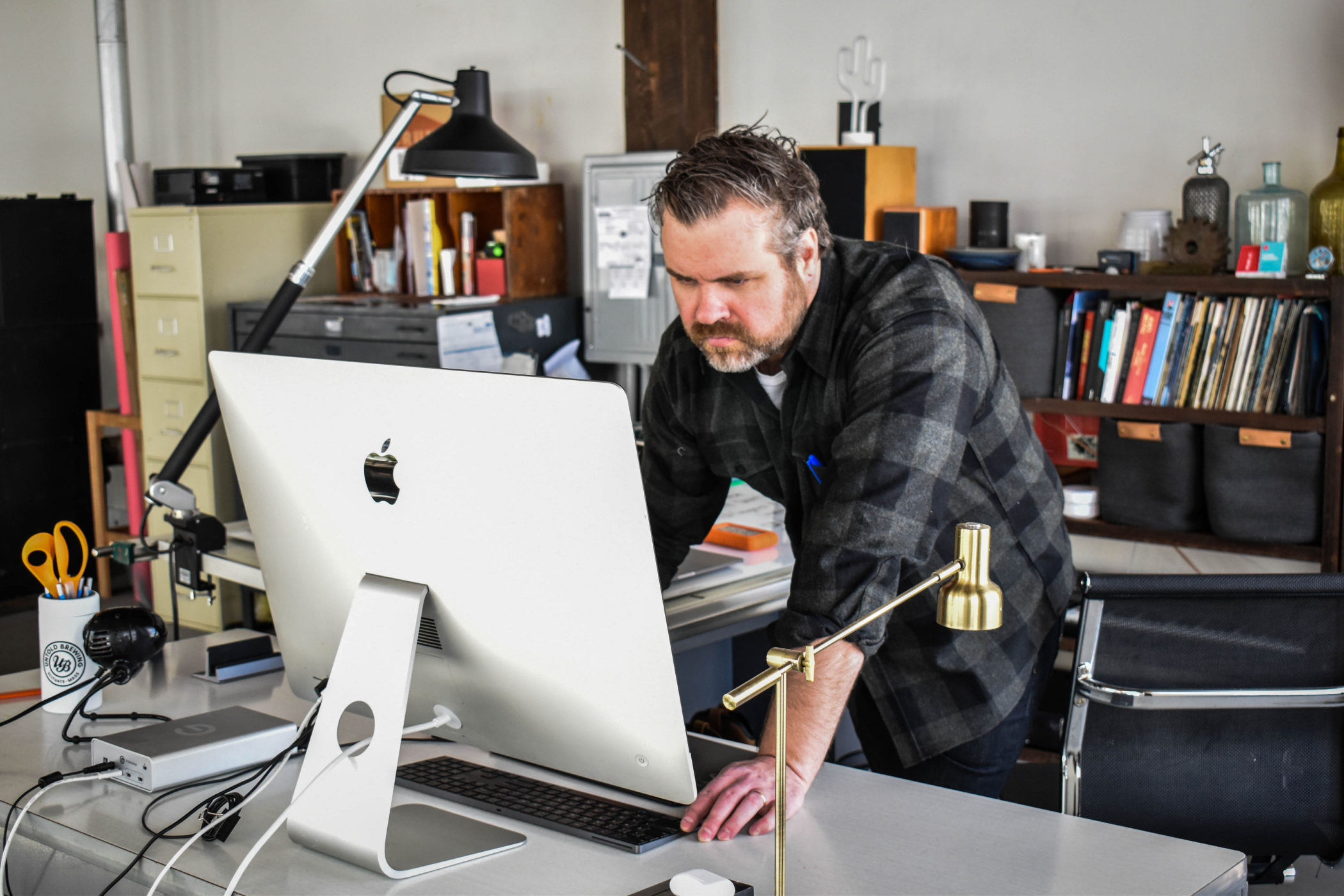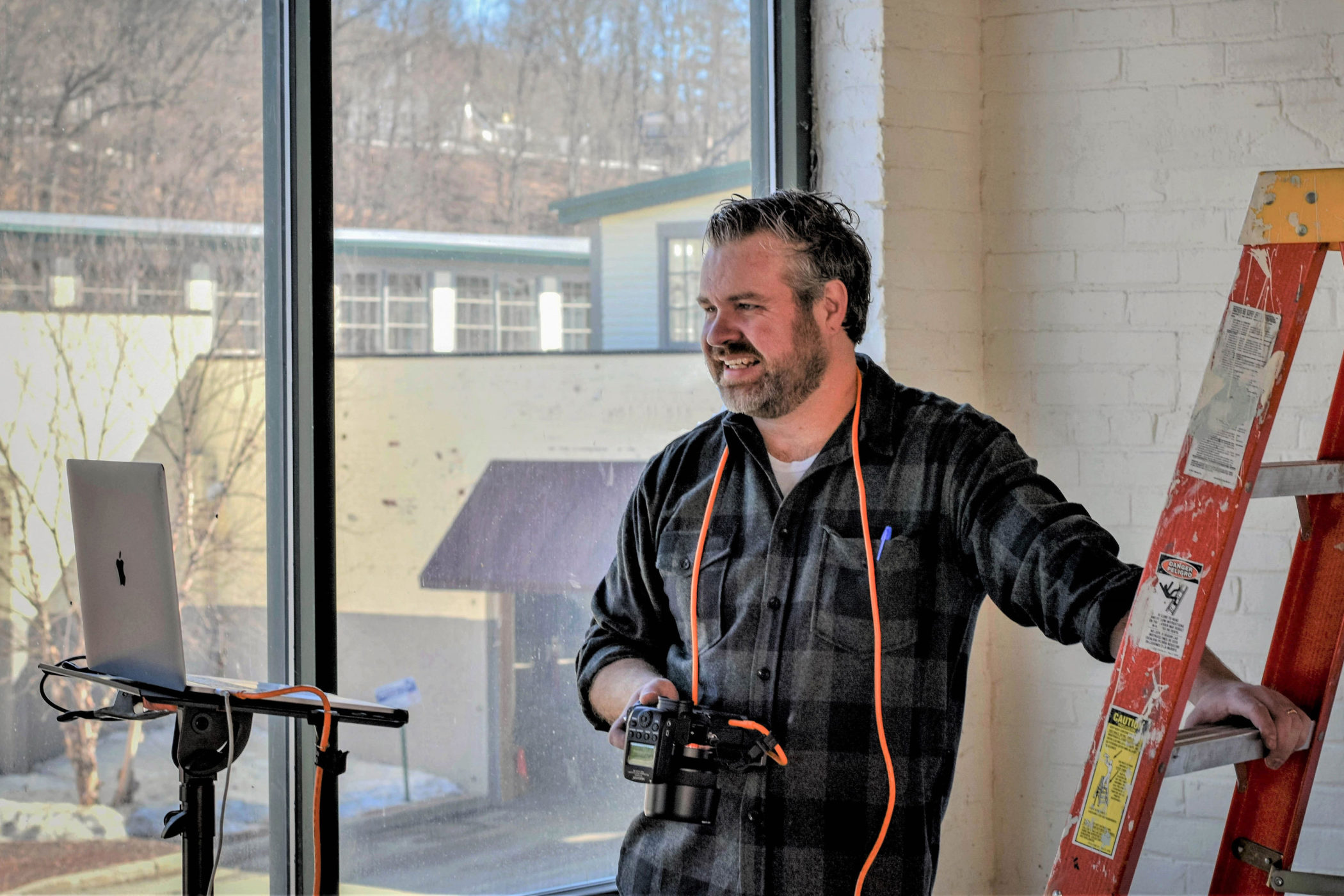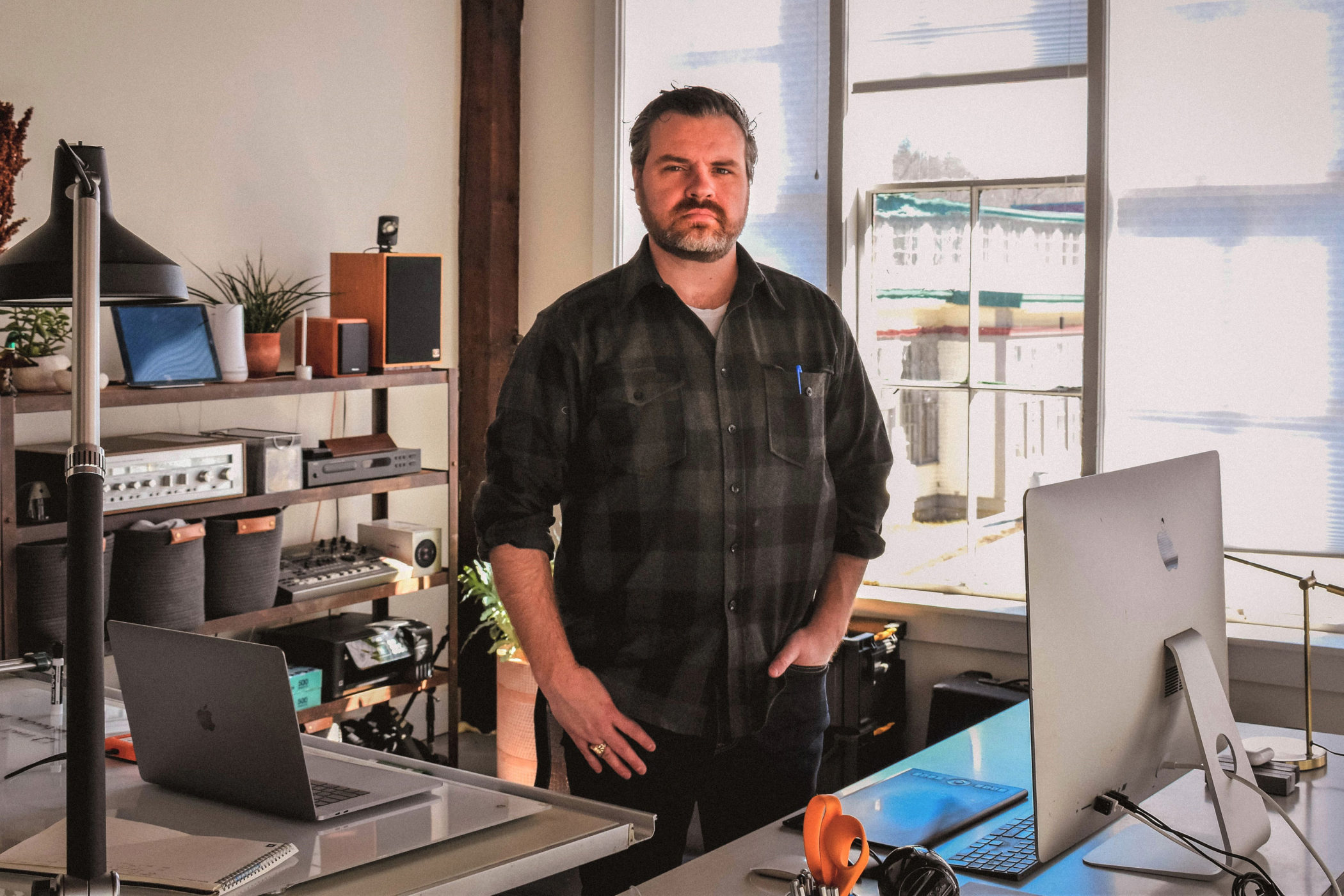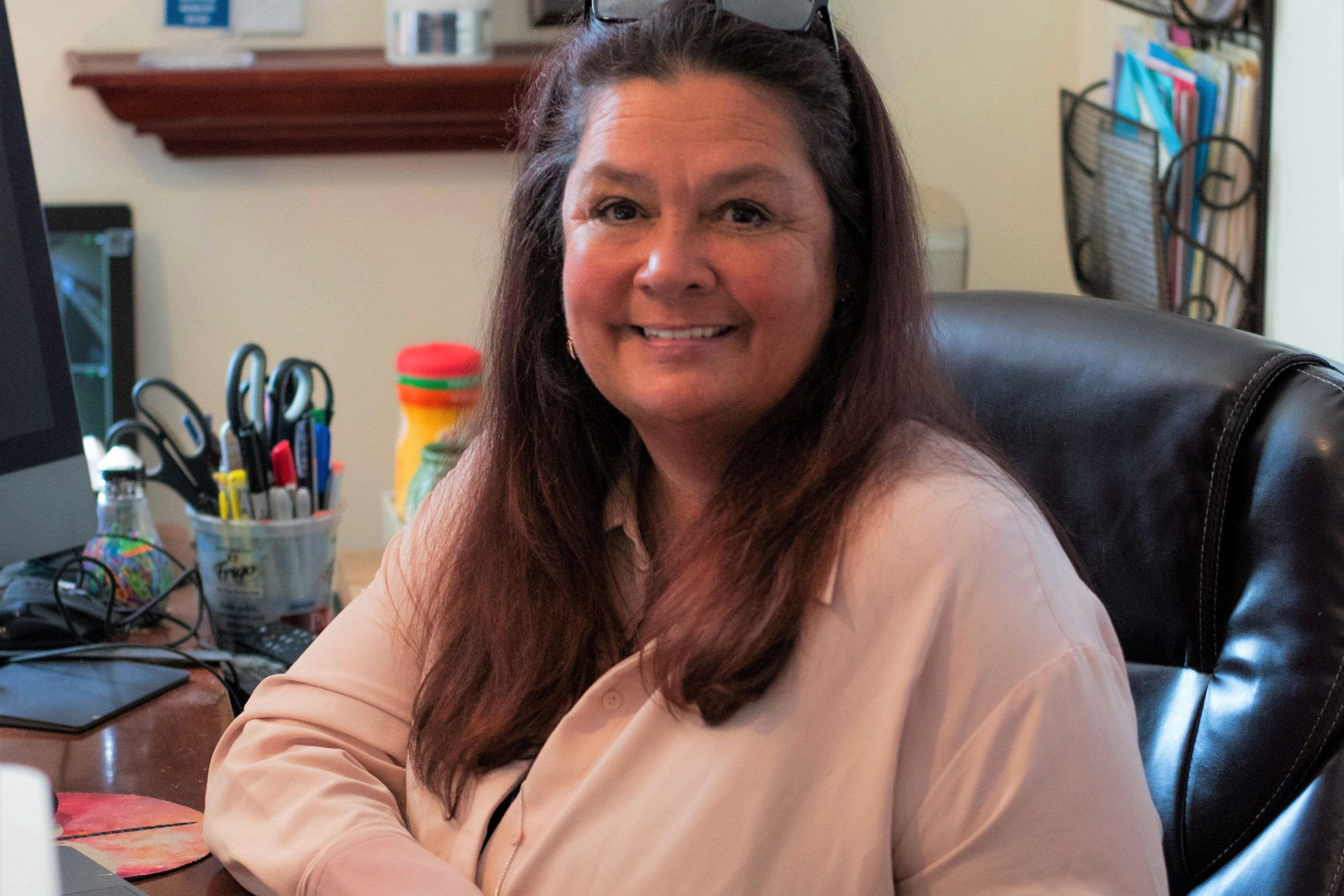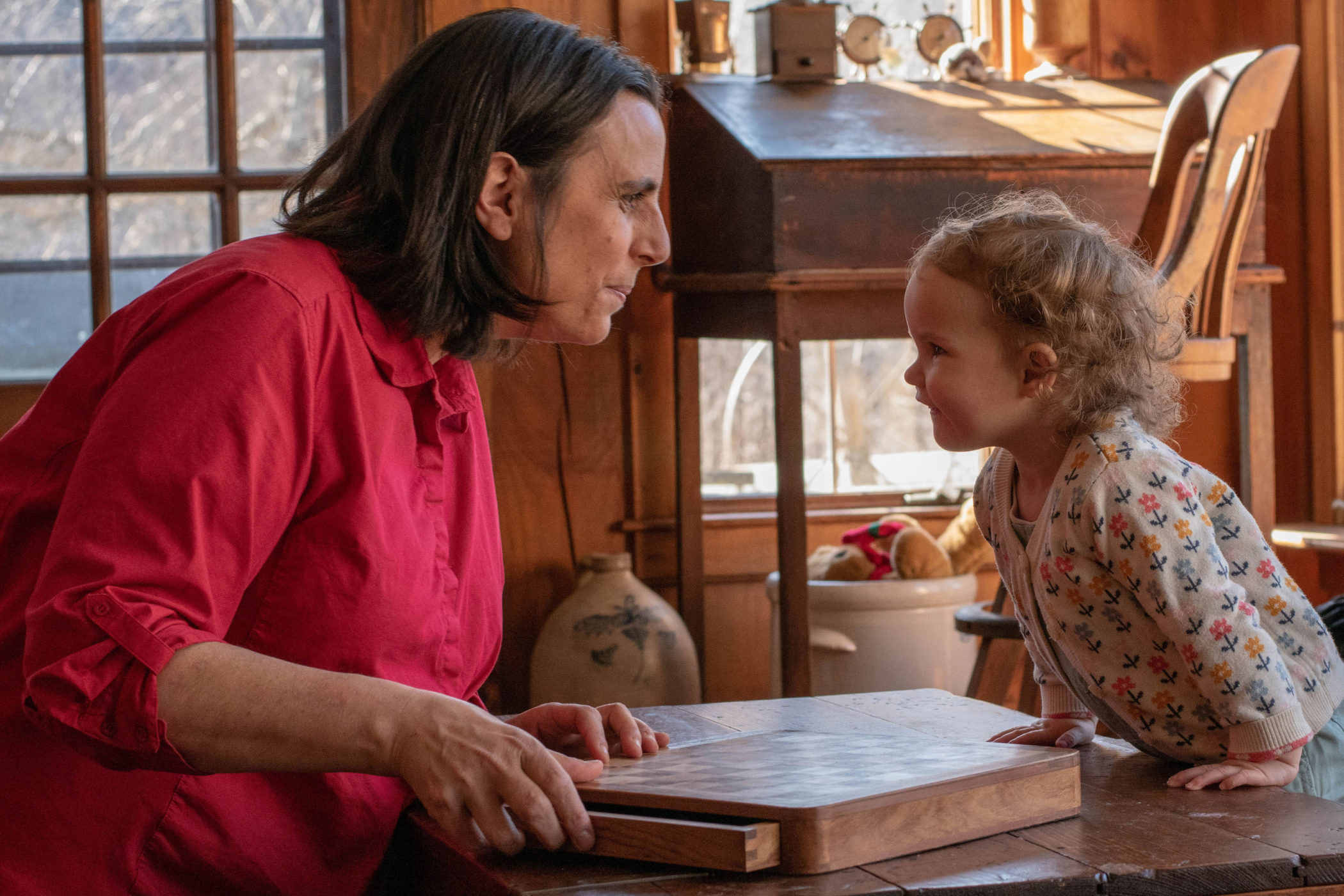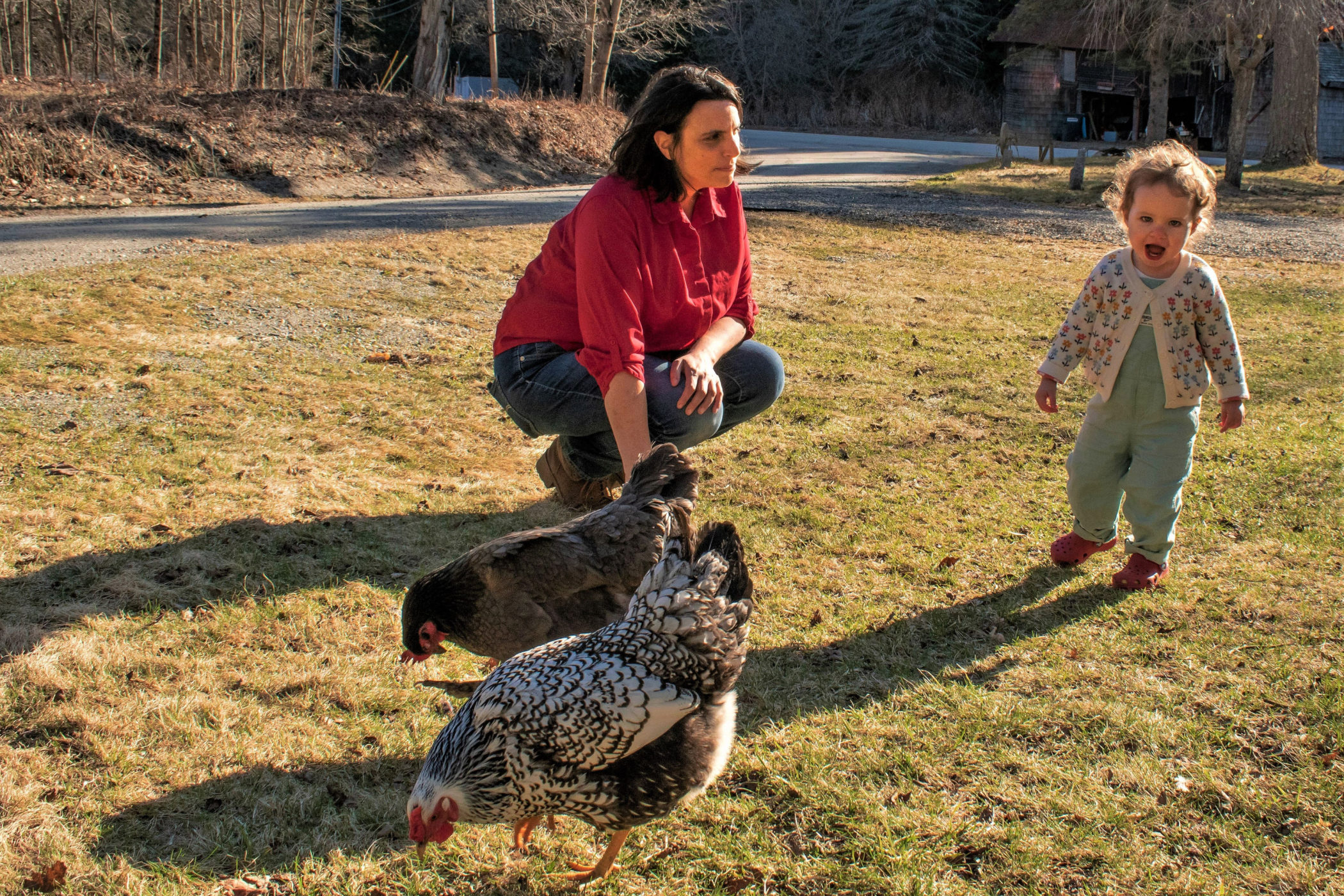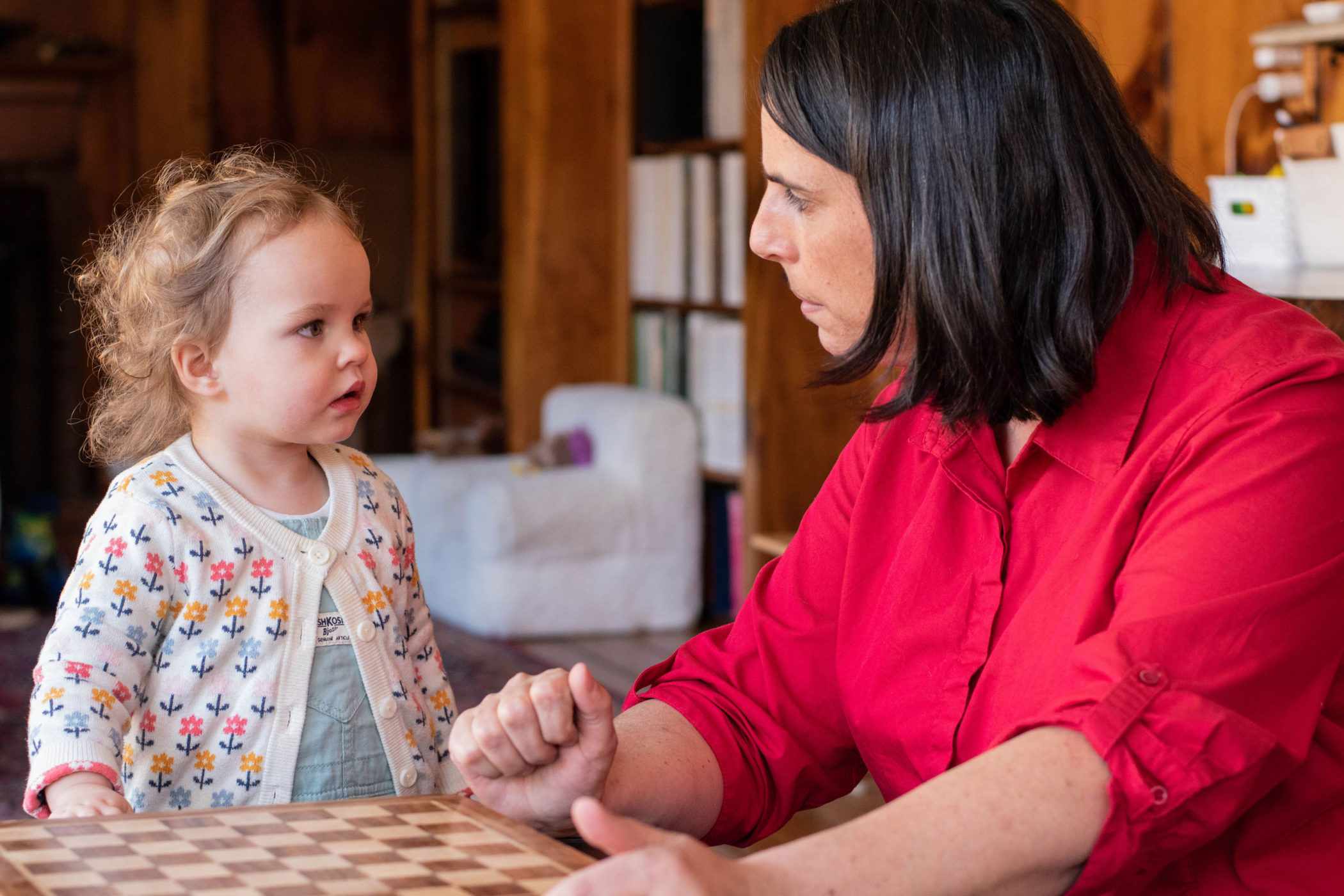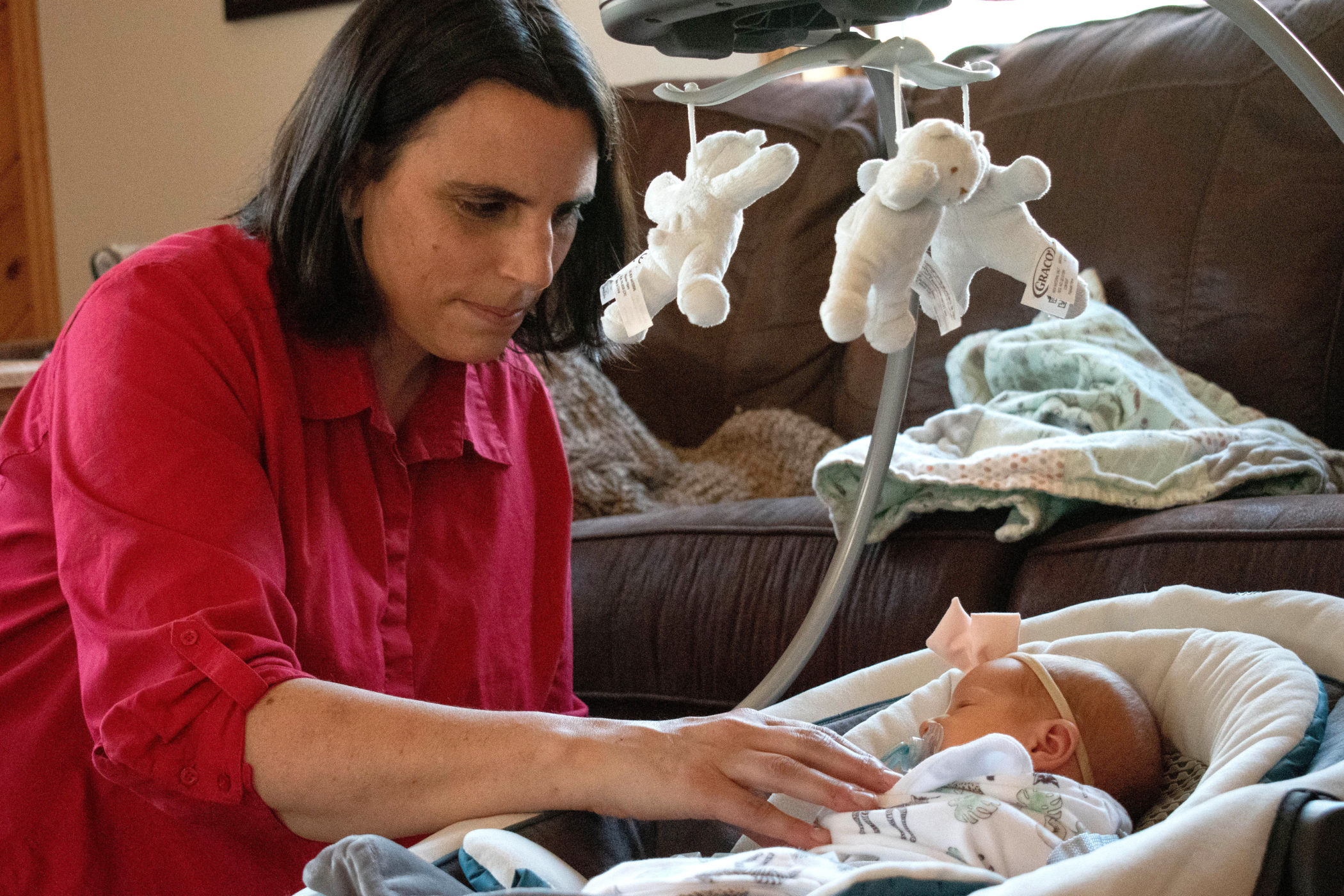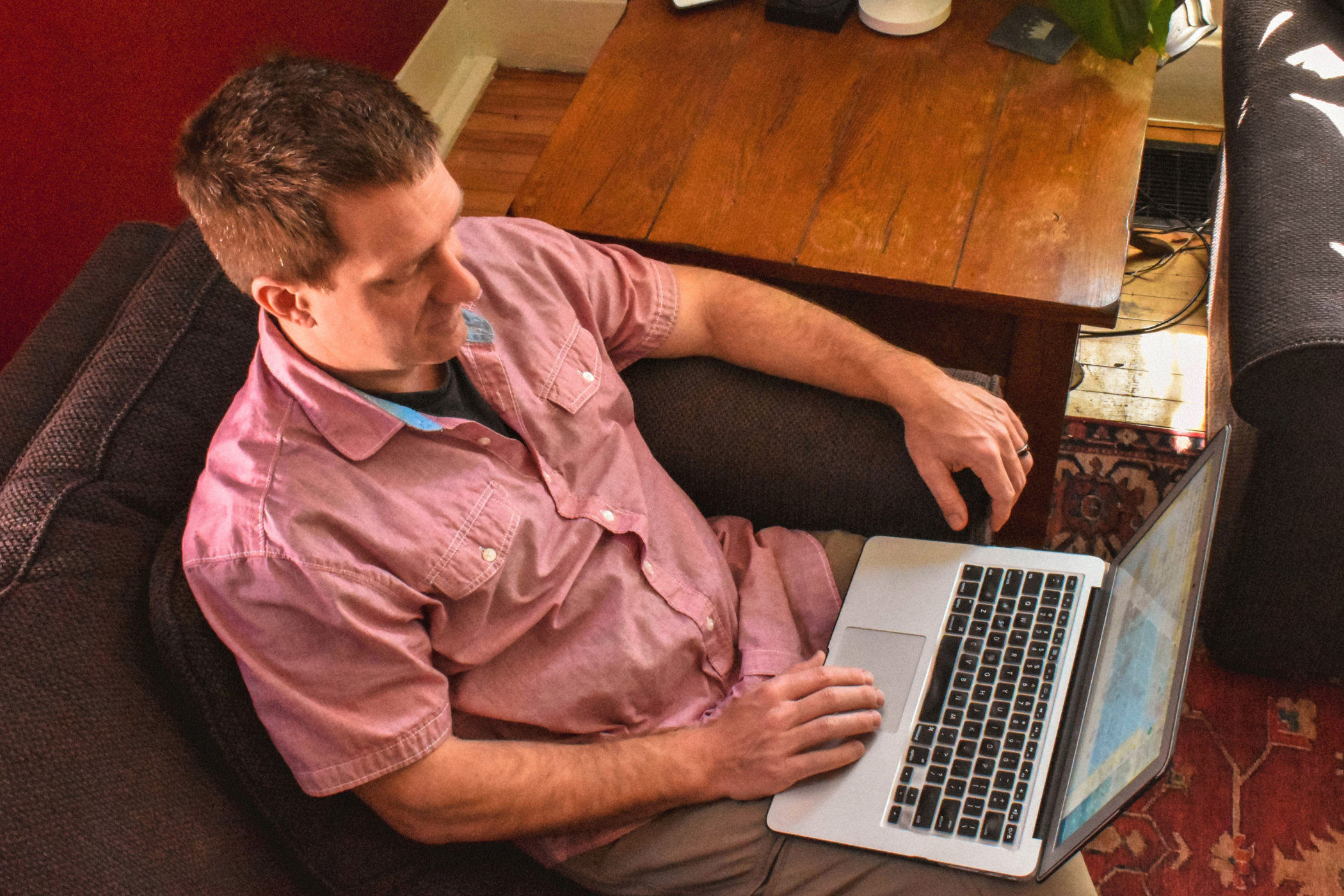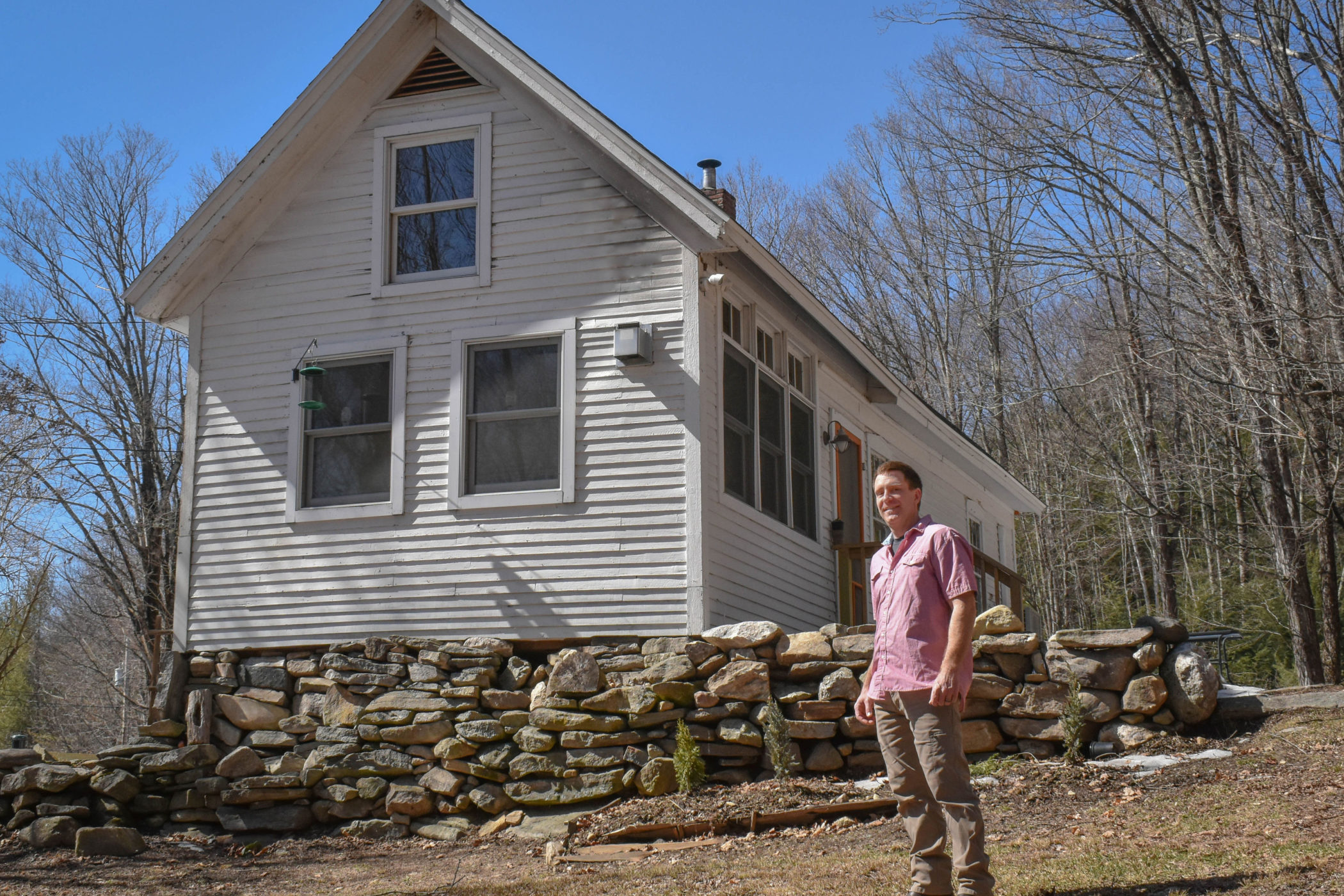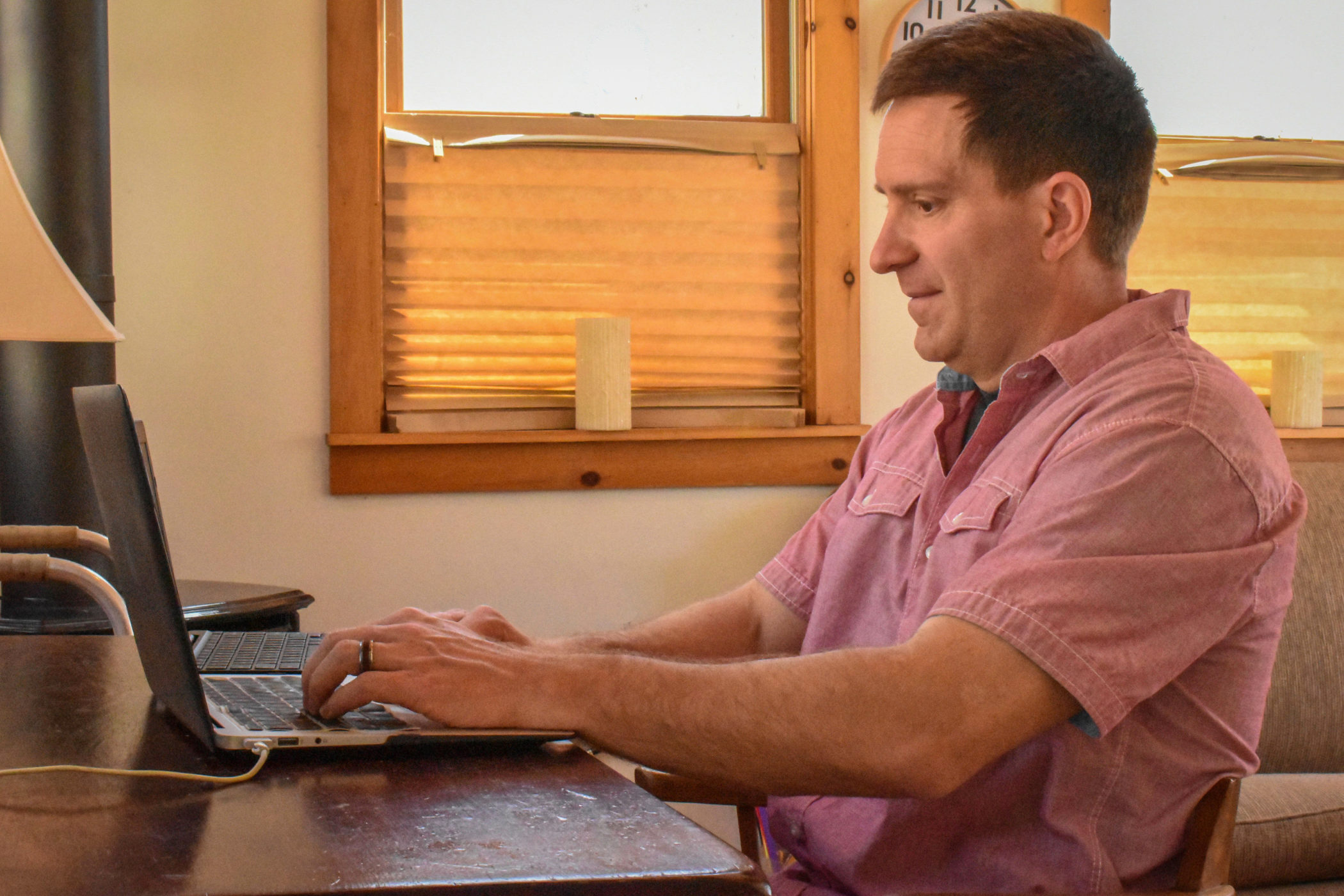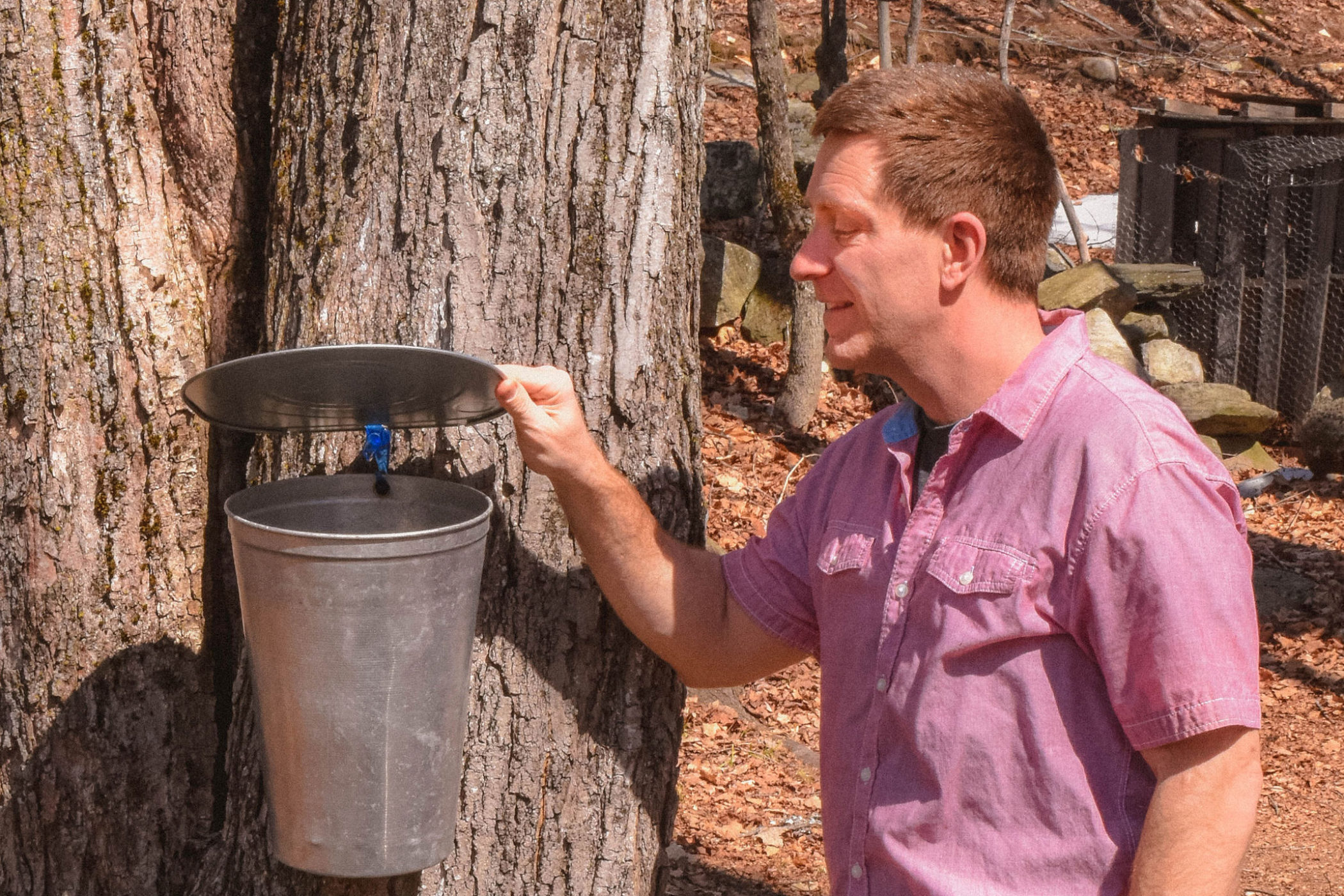Portraits of a community: Springfield
The Black River keeps rumbling along and so does Springfield, Vermont, the proud town that harnessed its power to become one of America’s elite manufacturing hubs in the early 20th century.
For decades, the town’s status as a machine-tool and innovation mecca meant Springfield boasted some of the best wages in Vermont. Its collective prowess crafting precision tools made it so important to the Allied war effort in World War II that it was allegedly one of the Nazis’ top 10 bombing targets in the U.S. — a point locals still brag about to this day.
But the decline of Springfield’s manufacturing industry in the decades since has brought about a cycle of reinvention and renewal.
The amenities have adapted to meet the times.
The Black River Innovation Campus has become a hub for entrepreneurship and digital economy opportunities. Ivy League resources are just a half an hour away at Dartmouth College, while world-class skiing and outdoor recreation are even closer. And now, the town’s 8,900 residents can brag about having some of the fastest internet in the country, thanks to Vermont Telephone Company’s pursuit of fiber-to-the-home after the Great Recession, making it ripe for 21st-century innovation and luring high-paying jobs back to the town.
That’s why the Center on Rural Innovation partnered with Springfield photographer Kimberly Hargis for the second installment of our “Portraits of a community” series. Our first stop in the project was Taos, New Mexico. These stories are meant to shine a light on the people who make up the unique ecosystems within CORI’s Rural Innovation Network, which connects rural leaders and advocates around the country to accelerate their learning and amplify their work on the ground.
Jason Gaboury
Co-owner and director, Northeast 3D Solutions
The first thing Jason Gaboury needs you to know is that 3D printing — also known as additive manufacturing — isn’t just for hobbyist items like Star Wars figurines and chess pieces anymore. It’s tied to the future of big-time production, for everything from commercial equipment to biomedical goods. That’s why the Vermont native helped launch Northeast 3D Solutions in his wife’s hometown. More than a decade spent growing with and learning the technology as an automotive engineer in Florida, Texas, and California laid the foundation for his work today: Bringing the power of 3D printing to legacy manufacturing companies in Springfield and the rest of New England.
“For me it goes back to the education of the community. We have a lot of history in the northeast — Springfield, specifically, has a ton of history in the machine-tool and manufacturing world. I want to try to bring Springfield some current industrial technology and bring that life back to Springfield. We have machine-tool guys around here that utilize us, so we’re supporting that industry that’s been here forever.”
“Today we’re printing parts that are 15% stronger than aircraft aluminum and 20% lighter. The threshold, the ability for us to use these parts every day, has become a day-to-day thing. It’s called fail hard, fail fast. We can make things quick and if they fail we just do iterative design, make another change and we’ll fail again until we’re successful. With this technology it’s much faster, much cheaper, and there’s a lot more advantages to doing that iterative design without needing a whole team to produce a part.”
“We’re not here just to sell you something and run away. We want to be a partnership. We want you to understand the growth aspect of additive. … It’s a passion of love. This is my community. Being able to support those exact manufacturers that built that equipment back in the day, it’s special and it’s neat to be here.”
Catherine Gellatly
Experience strategist
Seven years working in retail taught Catherine Gellatly that she didn’t want to stay there long-term. But the Washington, D.C. native’s time with Lululemon, which offered employees leadership training programs and quizzes for self-reflection, also empowered and informed her decision to pursue user-experience design. A graduate degree followed and then the COVID-19 pandemic pushed her to scrap a move to New York City and instead join her partner in Springfield, where he had already taken a job, sooner than planned. She quickly came to savor what her new surroundings — and her career’s portability — afforded her: The outdoors on her doorstep, and a unique insight as a resident of rural America that most colleagues at her creative agency didn’t have.
“I needed a job that would allow me to learn continuously and regularly … an industry where I knew I’d be constantly learning was in a digital realm because stuff changes so quickly. I found UX, it was buzz-wordy, and that was the moment I took control of the career that I wanted and figured out what it was that I saw myself doing for the rest of my life.”
“Honestly, I can’t remember the last time I had free time. I was the type of person that packed everything in. Part of the reason I ended up in this career is because I was working three jobs to try and pay bills in the city and I just didn’t want to do that anymore. I didn’t know what it was like to be like, ‘Oh, I don’t have anything to do today, why don’t I just call a friend?’ … Part of that is living in a place where people aren’t hustling in the same way. Here we can just text people and be like, ‘Do you want to come over for dinner tonight?’”
“For three months we hiked Mount Ascutney every weekend. It was wonderful to see the seasons change and see it go from fall and leaves to packed with ice, needing to hike with crampons, and then back to mud again. Having that outdoor access so easy — and more extreme outdoor access than just sitting in a park — has been great.”
Rick Johnson
CEO, Voi
Before retiring as a colonel, Rick Johnson’s three decades as a Marine Corps officer took him from his native Vermont to points across the globe. Along the way, Johnson earned degrees from the Naval Academy and Vermont Law School, worked as an assistant attorney general in his home state, and moved across the U.S. from one station to another — but always intended to get back to the Upper Valley of Vermont and New Hampshire. When he finally did, in 2011, he met Bill Hudenko, the Dartmouth professor who created the suicide prevention platform now known as Voi. That endeavor struck a chord with Johnson, who in his capacity as the former chief of staff for the Marine Corps Reserve oversaw reporting of suicides and attempts within the ranks. And since 2013, they’ve been busy building the company into a startup poised to improve mental healthcare outcomes via technology.
“Especially in the last year, seeing the impact of mental health on people’s overall wellbeing is kind of a big focus of mine and our tools are addressed to help those individuals stay healthy. Even though our initial focus is on suicide, our tools are more robust than that. They’re actually designed to provide support for depression, anxiety, substance use.”
“We moved our stuff down to Springfield last March, literally I think the day before the COVID restrictions hit. All our stuff is sitting in our office down there, still packed up in boxes. … My plan is as soon as we get funding, I’ll be hiring a number of tech people — developers, database managers, IT security people — and I assume I’ll be hiring those in the local economy down there.”
“Especially with my family’s ties to Springfield, knowing how it used to be a grand town and fell on hard times with the manufacturing going away, I think the potential of turning Springfield into a crown jewel of Vermont has always been appealing. The people that I know in Vermont and New Hampshire are very hard-working, very honest, and very creative. I’m very excited about the potential of bringing on those types of people into our company.”
Casimir Krupinsky
Art director, founder Pearl Street Creative
For ending up back in his hometown, Casimir Krupinsky is far removed from the cautionary tale of the “starving artist” that he heard about in art school. After 15 years of building a resume and skill set in New York City, he’s now shaping his future as the head of his own design agency, Pearl Street Creative, whose studio is in the same building where his grandfather worked as one of the gear-shapers who molded Springfield’s success in the last century. The quest for precision and pursuit of quality that drove that industry remains at the heart of Krupinsky’s work now, creating things — art, in his case — that make a lasting difference for businesses.
“Once you live in Vermont I think you’re always kind of itching to come back. … It was always the plan to cut my teeth in a big city, get enough experience where I felt comfortable doing great work remotely — and then if I had to travel it would be fine with me.”
“I’m a point person to execute all these creative needs to bring everything together and get something up and running. The nice thing about that is I get to pick and choose the things I think I’m best suited for and enjoy working on, and the other things that would require more time or more people or a different skill set, I get to find those people and work with them directly, build a small remote-working agency that way.”
“The most inspiring part about living up here is the ability to remove myself every day to just have a little bit of alone time, thinking about the next three weeks or the next three months or the next three years. It’s the isolation from influences that are not your own, not what you’re good at or interested in, that’s been really helpful. It shapes the way I want to think.”
Karen Longo
Creative director, founder Dragonfly Designs
After 27 years working in a creative capacity for Deloitte, the global professional services giant, Karen Longo paired a move up the Connecticut River — from its namesake state to its banks in southern Vermont — with the decision to strike out on her own. The mother of five adult children embraced her new surroundings in Springfield and set up a boutique marketing agency, Dragonfly Designs, that leaned into her years of experience in corporate art direction and design. And save for a month-long sabbatical spent gardening and kayaking, she’s worked steadily ever since.
“When we were going back and forth from Connecticut to Vermont we used to cross over the state border into Vermont and it was like (exhaling), I can breathe. I’m going to be OK. And I also feel like this is a judgment free zone — be as creative as you want to be. It’s OK to make mistakes.”
“There’s a sense of community that’s quite wonderful and very supportive. There’s really this very neat network within Springfield of technology and business owners and entrepreneurship. People help each other all the time. I never feel like it’s a competitive thing here, which you do find in other areas. It feels like everybody’s helping each other to be successful.”
“My clientele is across the board — it’s across the U.S. and it’s also local. I work very closely with BRIC, just worked on this entrepreneur program, and helped one of the participants in that put together their pitch deck. We got them a logo, we got them a color palette so they feel on-brand, and their voice — it’s not just a logo, it’s what is the voice of your company and what you’re going to be doing? And I work very closely with River Valley Tech Center. We’ve had their students as interns. We just worked on a little project where they helped design a poster, and we did critiques weekly. I love that kind of thing, I love to see the energy of the students, the excitement in what they’re working on.”
Cara Tyrrell
Educator, co-founder Core4 Parenting
Each step of Cara Tyrrell’s adult life led her to her current venture, launching Core4 Parenting, an online education and parent-coaching platform. A nanny and former teacher fluent in American Sign Language (ASL), a mother of two with a masters in early childhood education and background in linguistics, she decided 2020 was the right time to begin scaling the educational methodology she’d been practicing on a 1-to-1 basis for years. She’s crafted a curriculum that anyone involved in raising a child can access, one that incorporates ASL as a communication bridge, and incorporates other intentional strategies to help young children develop other social-emotional and intrapersonal skills.
“I’ve always done the work I’m doing, I’ve just never had the ability to take it to this broad of a public. … About a year ago, right when COVID started, I said, well I’ve got all this time now, maybe it’s time to write this curriculum in a way that other parents and other caregivers can access. So instead of working with a classroom of kids at a time or a family at a time, I can influence the quality of young peoples’ lives millions at a time.”
“Core4 Parenting uses proven science and the psychology of growth development to influence positive parenting results. … We come into this parenting thing thinking we should know exactly how to do it but all we have are echoes of the models of the people who did it for us — and maybe that’s fantastic, maybe it’s not. But we need to take ownership like if we were starting a new job. You’d not start a new job without onboarding and training and knowing there’s expectations for you and the people you’re working with.”
“I’ve had my journey. … I’ll be 45 in June and baby-bouncing is getting hard. Chasing toddlers is getting exhausting. It’s time for a shift where I can empower parents in their own homes to create this type of experience for themselves, this type of change that they’re looking for.”
TJ Whipple
Platform manager, data analyst
A former math teacher, TJ Whipple spent more than a decade abroad as an educator in Mexico and Honduras. He returned stateside a few years ago with his family, ready to graduate from city life to somewhere he could enjoy skiing and snowboarding, hiking and biking. Not long after, Whipple found himself ready for a career change, too. The Chicago native embarked on a series of online coding courses, enough to decide web design wasn’t for him, and pivoted toward data science with the help of a program through the Black River Innovation Campus. Aligning more with his love of math and statistics, connections in Springfield, his new hometown, led him to join CoreValue Research, where he’s now helping the organization build an online community of professionals able to help small businesses thrive.
“The last place we lived was Mexico City, which is one of the biggest urban industrial areas in the world, and we decided that we wanted to raise our family in a rural town, which meant my options for doing something outside education were going to be slim. I thought the data science avenue would open up some opportunities — working from home or whatnot. … I love skiing, I love the mountains. That’s originally what drew us to Vermont. Springfield in particular has been very friendly, much more locally-based, not so tourist industry-based.”
“With CoreValue, the fact that I see the history of Springfield and how a lot of the small towns around are economically challenged, you’ve got a lot of small businesses that are struggling that I feel like do actually need support.”
“A lot of companies need access to capital but if you’re a small business and you’re not making much, your profit margin isn’t very high, no banks are going to lend to you and you can’t get ahead. So the idea is if we can show the value of a company either to sell it to a bigger company or to increase the chances of them getting more access to capital, then that is a way to help these businesses grow.”
It doesn’t end here.
Springfield is a great example of what can happen when America’s historic small towns embrace the hard work required to reinvent themselves and create thriving ecosystems that can meet the future head-on.
Through its Rural Innovation Initiative, CORI’s work makes it possible for local leaders to connect and learn from each other in a community of practice. RII communities have a range of resources at their fingertips to help implement what CORI has identified as Direct Drivers of vibrant digital economy ecosystems:
- Access to Capital
- Scalable Tech Entrepreneur Support and Incubation
- Inclusive Tech Culture Building
- Access to Digital Jobs
- Digital Workforce Development and Support
Each of these elements allow rural communities like Taos and Springfield to compete in the broader tech economy.
Learn more
To meet the Rural Innovation Network communities doing ecosystem building in small towns across the country, you can find a list here.
If you are a community interested in working with us to grow or build your own digital economy ecosystem, please contact us.
To learn more about our work in this space, be sure to check out our blog and sign up for our newsletter.

